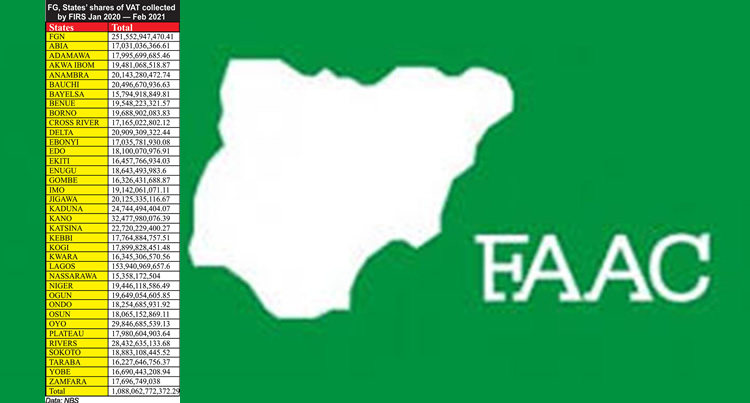The Federation Account Allocation Committee (FAAC), the body responsible for distributing federally collected revenues among the three tiers of government in Nigeria, has announced the indefinite postponement of its crucial February 2025 meetings. This unexpected delay, conveyed in a statement released on Thursday by FAAC Secretary Ali Mohammed, throws into uncertainty the disbursement of funds to states and local governments, potentially impacting their ability to meet financial obligations and deliver essential services. The initial notice of postponement, dated February 14, 2025, offered no explanation for the delay, raising concerns and speculation about underlying issues affecting the revenue allocation process. The subsequent statement confirming the indefinite postponement only added to the ambiguity, merely stating that a new meeting date would be communicated later.
The postponement of FAAC meetings is a rare occurrence and typically signals significant disagreements or unresolved issues related to revenue generation, reconciliation, or distribution. While the statement from the FAAC secretary offered no specific reasons for the delay, potential contributing factors could include disputes over revenue figures provided by revenue-generating agencies, discrepancies in calculations, or disagreements regarding the application of allocation formulas. Another possible factor could be the ongoing economic challenges facing the country, including fluctuations in oil prices, declining production, and difficulties in revenue collection, which might have created uncertainties in the available funds for distribution. Furthermore, political considerations and power dynamics between different levels of government could also play a role in delaying the crucial meetings.
The implications of the FAAC meeting postponement are far-reaching, particularly for state and local governments heavily reliant on federal allocations to fund their operations. The delay in disbursement could lead to significant cash flow problems, hindering their ability to pay salaries, pensions, and execute critical projects. This financial strain could exacerbate existing social and economic challenges, potentially leading to delays in service delivery, including healthcare, education, and infrastructure development. The uncertainty surrounding the timing of the rescheduled meetings also creates budgetary challenges for state and local governments, making it difficult for them to plan and allocate resources effectively.
The lack of transparency surrounding the reasons for the postponement further fuels speculation and concerns about the integrity of the revenue allocation process. The absence of clear communication from the FAAC and the Ministry of Finance leaves room for misinformation and rumors, potentially eroding public trust in the government’s financial management. The statement’s promise of a reviewed communiqué following the rescheduled meeting suggests that previously agreed-upon allocations might be subject to change, further adding to the uncertainty and potentially creating tensions between different levels of government.
This indefinite postponement underscores the need for greater transparency and accountability in Nigeria’s revenue allocation process. Clear and timely communication from the FAAC and relevant government agencies is essential to manage expectations and maintain public trust. Providing detailed explanations for delays and ensuring open dialogue between stakeholders can help mitigate potential conflicts and foster a more collaborative approach to revenue management. Furthermore, strengthening institutional mechanisms for revenue generation, reconciliation, and distribution can enhance the efficiency and predictability of the allocation process, reducing the likelihood of future disruptions.
Moving forward, it is crucial for the FAAC to prioritize resolving the underlying issues that led to the postponement and to promptly reschedule the meetings. Open communication and a commitment to transparency will be essential in restoring confidence in the revenue allocation process and ensuring that vital funds reach state and local governments without further delay. The long-term stability and development of Nigeria depend on a well-functioning and transparent system for managing and distributing its financial resources, and addressing the challenges highlighted by this postponement is a critical step in that direction. Furthermore, exploring alternative revenue sources and diversification of the economy can reduce dependence on volatile federal allocations and enhance the financial autonomy of state and local governments.














